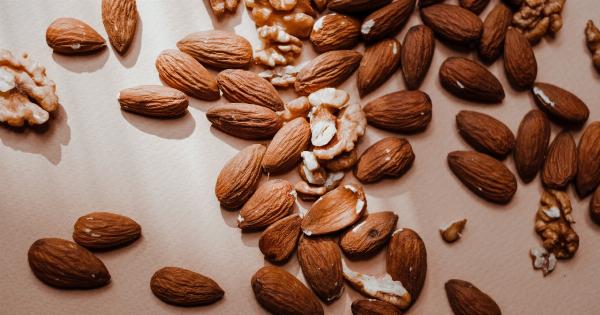Heart disease is a major cause of death worldwide. While genetics play a key role in your risk of developing heart disease, lifestyle factors such as diet also play a major role.
Certain foods can help lower your risk of heart disease by reducing inflammation, improving cholesterol levels and blood pressure, and promoting overall heart health. Here are some of the top foods that can help keep your heart healthy:.
Fatty Fish
Fatty fish such as salmon, mackerel, and sardines are rich in omega-3 fatty acids, which have been shown to reduce inflammation, lower blood pressure, and improve cholesterol levels.
The American Heart Association recommends consuming at least two servings of fatty fish per week. If you’re not a fan of fish, consider taking an omega-3 supplement instead.
Nuts
Nuts are a good source of healthy fats, fiber, and antioxidants. Eating a handful of nuts each day has been shown to improve cholesterol levels and reduce inflammation, both of which are major risk factors for heart disease.
Walnuts, almonds, and pistachios are particularly good choices.
Whole Grains
Whole grains such as oatmeal, brown rice, and quinoa are rich in fiber, which is important for heart health.
Eating whole grains has been shown to reduce the risk of heart disease and stroke by lowering cholesterol levels and keeping blood sugar levels stable. Try to choose whole grain products over refined grains such as white bread and pasta.
Fruits
Fruits are naturally high in fiber, antioxidants, and other nutrients that promote heart health. Eating a variety of fruits each day can help lower your risk of heart disease by reducing inflammation and improving cholesterol levels.
Berries, citrus fruits, and apples are particularly good choices.
Vegetables
Just like fruits, vegetables are rich in fiber, antioxidants, and other nutrients that promote heart health.
Eating a variety of vegetables each day can help lower your risk of heart disease by reducing inflammation, improving cholesterol levels, and keeping blood pressure stable. Dark leafy greens, cruciferous vegetables such as broccoli and cauliflower, and colorful vegetables such as sweet potatoes and bell peppers are all great choices.
Avocado
Avocado is a good source of healthy fats, fiber, and potassium, all of which promote heart health. Eating avocado has been shown to improve cholesterol levels and reduce inflammation, both of which are major risk factors for heart disease.
Try adding avocado to your salads or sandwiches for an extra boost of heart-healthy nutrients.
Legumes
Legumes such as beans, lentils, and chickpeas are high in fiber, protein, and other nutrients that promote heart health.
Eating legumes has been shown to improve cholesterol levels and lower blood pressure, both of which are major risk factors for heart disease. Try adding legumes to your soups, salads, or as a meat substitute in your meals.
Dark Chocolate
Dark chocolate is rich in antioxidants called flavonoids, which have been shown to improve blood flow, lower blood pressure, and reduce inflammation. Eating a small amount of dark chocolate each day can help lower your risk of heart disease.
Be sure to choose dark chocolate that contains at least 70% cocoa and consume in moderation as it is still high in calories.
Green Tea
Green tea is rich in antioxidants called catechins, which have been shown to improve blood flow, reduce inflammation, and lower cholesterol levels. Drinking green tea regularly can help lower your risk of heart disease.
Try to drink at least 2-3 cups per day.
Olive Oil
Olive oil is a good source of healthy fats and antioxidants, both of which promote heart health. Consuming olive oil has been shown to improve cholesterol levels and reduce inflammation, both of which are major risk factors for heart disease.
Use olive oil for cooking or as a salad dressing for an extra boost of heart-healthy nutrients.





























